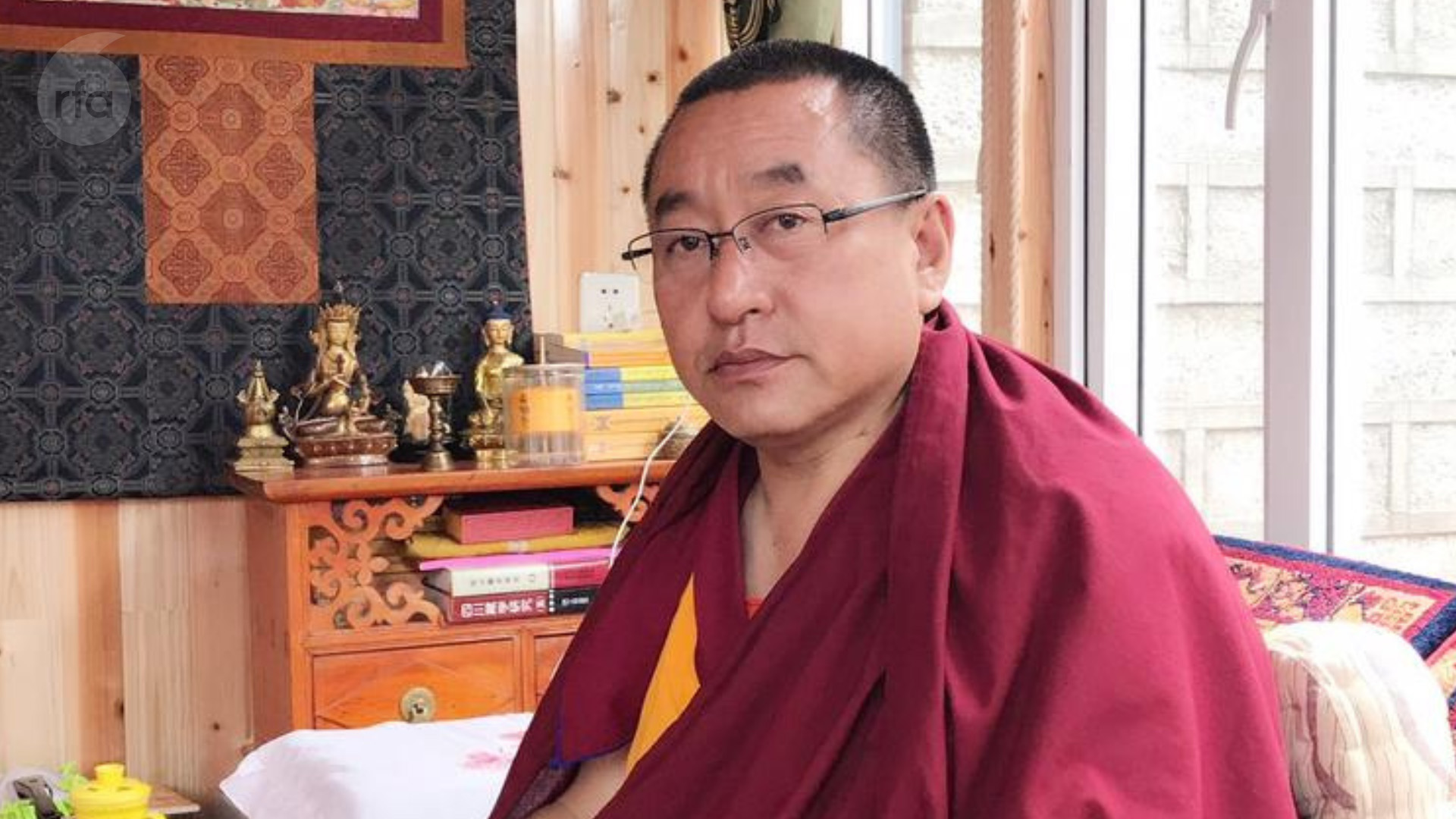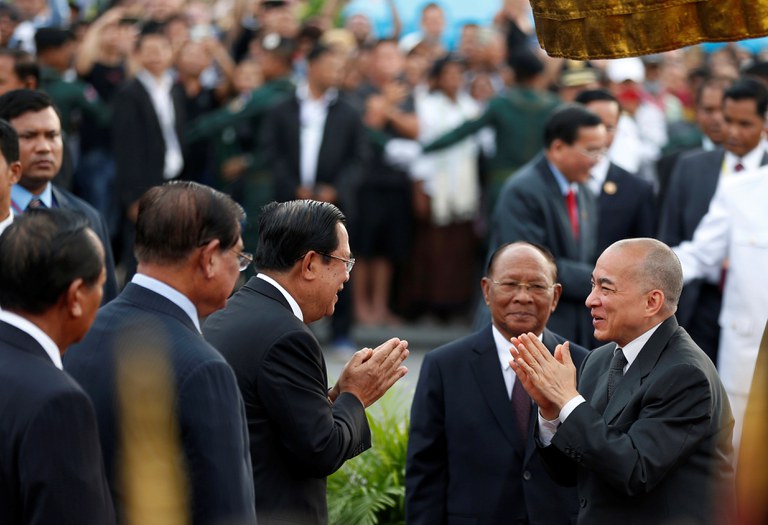
Videos show brutal interrogation in Myanmar, allegedly at hands of junta soldier
Sunlight streams into a room where two men sit on a green, floral-patterned mat – one bound and blindfolded, the other holding a gun. The armed man is wearing a jacket with a Myanmar military badge on its sleeve. He pokes the barrel of his assault rifle at his prisoner’s head before repositioning himself, seemingly to make sure a cell phone set up to record the scene captures both his profile and the torture to come. The phone was found on Nov. 6 in Moe Bye township in Kayah state by members of the Karenni Nationalities Defense Force (KNDF), an armed ethnic group fighting the military junta for control of the country, and shared with an RFA Burmese reporter. In the video retrieved from the phone, the man in the military jacket sets aside his rifle and picks up a stiff rod that he uses to repeatedly strike the victim, asking in Burmese if the man is a member of the People’s Defense Force, a group of militias fighting the military for control of the country. “Are you part of the PDF?” the man asks. “Did PDF and KNDF come to your village?” The victim seems to struggle to understand, an indication that he may speak Karenni, Kayan or another local dialect. He shifts and stiffens as he senses another strike is coming, his gasps growing more plaintive as the abuse continues. RFA hasn’t identified either the perpetrator or the victim and is unable to independently verify the authenticity of the video. The interrogator pokes an assault rifle at his captive’s head. Credit: RFA screenshot from video Maui, a KNDF secretary, said in an interview that the phone was discovered after a firefight with military forces, but that it was apparently shot in September. The KNDF said the man in the video was a resident of Kayah and not a member of its forces. Calls seeking comment from junta Deputy Information Minister Maj. Gen. Zaw Min Tun went unanswered on Wednesday. Myanmar’s junta has waged a brutal counterinsurgency campaign since it ousted a democratically elected government in early 2021. It now faces resistance on a number of fronts, from ethnic areas along the country’s borders and pro-democracy PDFs that are tied to the shadow National Unity Government in its interior. In the 20 months since the coup, the military has struggled to maintain control against the rebel forces arrayed against it. Thailand’s Assistance Association for Political Prisoners (Burma), said authorities in Myanmar have killed at least 2,311 civilians and arrested nearly 15,600 others since the coup — mostly during peaceful anti-junta protests. The Institute for Strategy and Policy (ISP Myanmar) said in a report last spring that at least 5,646 civilians in the country had been killed between the Feb. 1, 2021, coup and early May. A Myanmar military patch is seen on the arm interrogator’s jacket. Credit: RFA screenshot from video Maui said an insignia on the gun indicates that the torturer in the video is a soldier from the Light Infantry Battalion-1, under Myanmar’s 66th Infantry Division. Maui told RFA have been tortured by junta soldiers since the 66th launched an offensive against KNDF forces several weeks ago. “The junta troops always arrest and interrogate some villagers who do not run away and remain in their own homes when they arrive,” he said. “They torture and kill if they are not pleased. This is what they always do.” The brutal interrogation was shared with RFA in seven videos that run for a total of about 17 minutes, all in the single, sunlit room. The man in the military jacket smokes in one sequence and pauses to eat something in another. He alternately seems bored, frustrated and indifferent as he uses the rod to strike and choke his cowering victim. At one point, he appears to stab the other man with a small knife. A picture of the phone, a Samsung Galaxy A12, was shared with RFA, but not the phone itself. KNDF also shared photographs of a decapitated man it says it retrieved from the same phone. RFA is not publishing those pictures. The captive struggles as the interrogator chokes him with a rod. Credit: RFA screenshot from video This summer, RFA obtained evidence of atrocities from a soldier’s abandoned cell phone in the Sagaing region, which has been the setting of a number of conflicts between People’s Defense Forces militias and Myanmar soldiers. The phone contained photographs of two soldiers standing behind five blindfolded and bleeding victims, and a video of the men bragging about the number of people they had killed. The phone was discovered by a villager in the Ayadaw township where the military had been conducting raids. In response, military leaders said they would investigate, but there is no evidence they have done so. The videos share a shamelessness in the brutality they depict. Maui said military forces are deliberately torturing civilians. “If the people are scared, they will stop supporting the resistance groups. Our revolution is based on the support of our people,” he said. “Our resistance groups will never back off [because of the] atrocities. I believe that the people will support us even more because of their inhumane acts.” The Kayah video ends with the tortured man lying on his back as his torturer, now with a machete in his hand, plays an audio of a Buddhist monk. The videos do not show what happened to the captive. “I’ve filmed you,” the armed man says, noting his victim is about the same age as his father. “I feel sorry for you only after I’ve tortured you.”




